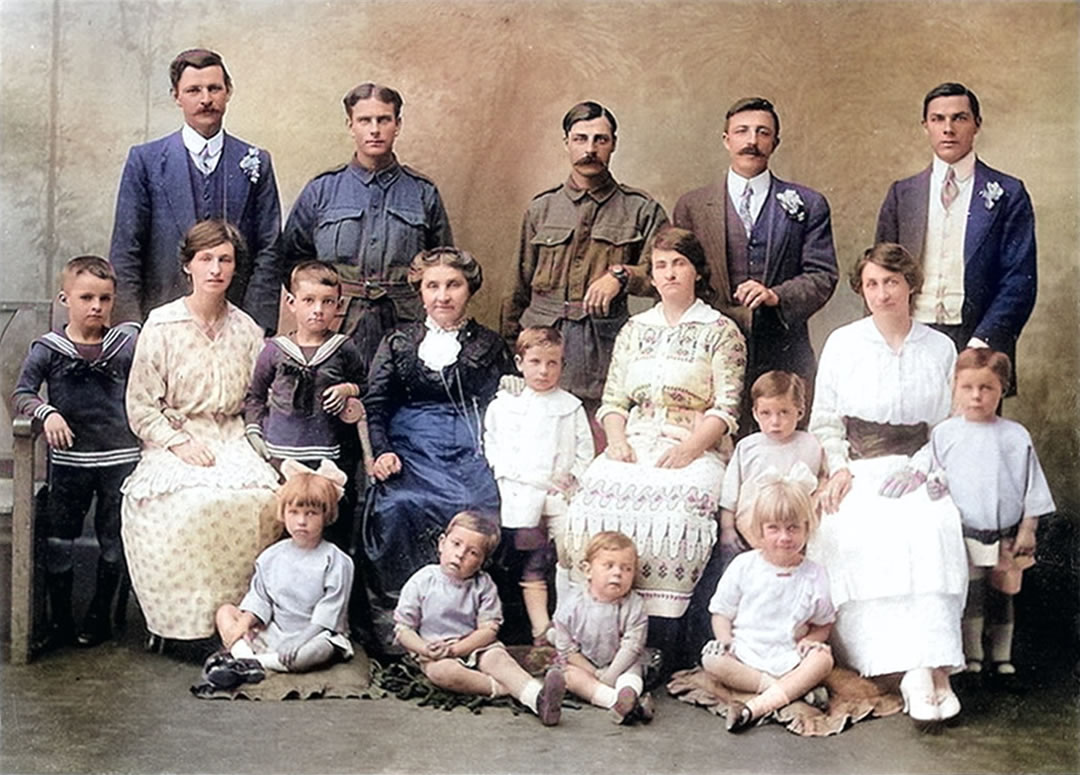The Doig Family of Fremantle
Back: James Alexander Doig, William Cleaver Robinson Alexander Doig, Norman Alexander Doig, John Alexander Doig, Charles Alexander Doig
Middle: James Alexander Doig, Margaret Elder Doig, Ronald Oldham Doig, Agnes Robertson Doig, John Norman Doig, Mary Fraser Doig, George Ronald Doig, Isabella Doig, Charles George Doig
Front: Mary Fraser Doig, William Wallace Doig, Edgar David Doig, Linda May Doig
Seventeen members of the Doig family have represented either East Fremantle or South Fremantle Football Club over three generations. Their collective contribution to football in Fremantle has been recognized by the Fremantle Football Club by naming its Club Champion Award as the Doig Medal.

The West Australian Football Commission also named one of the function rooms at Subiaco Oval as the Doig Room.
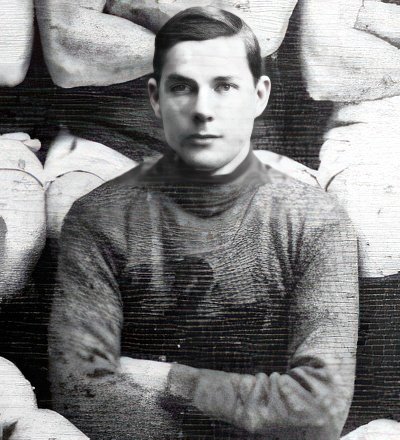
Charles Doig (Snr)
An early member of the famous Doig clan, Charles ‘Chas’ Doig senior was an extremely talented forward who played a total of 209 games for East Fremantle between 1903 and 1915, and then in 1919 and 1921. During that time he was a member of no fewer than seven premiership teams, as well as in three losing grand finals.
His 8 interstate appearances for Western Australia included games at the carnivals of 1908 in Melbourne, 1911 in Adelaide, and Sydney in 1914.
Goal kicking records in Western Australian football during the early twentieth century were not always meticulously maintained, but it is known that Doig topped East Fremantle’s goal kicking list in 1913 with 36 goals and in 1914 with 34. More than likely, he would have been the club’s leading goal kicker on several other occasions as well, although he was far more than just a goalsneak, being capable of playing in any position on the forward lines with equal effectiveness.
Charles Doig senior was non-playing coach of Old Easts for one season in 1940, when they finished 3rd.
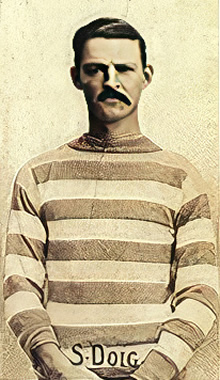
Jim Doig
A prodigiously talented centre half back, ‘Scotty’ Doig was one of the earliest members of arguably the most famous clan in Australian football.
He was a member of East Fremantle’s grand final winning teams of 1904, 1906, 1909,1910 and 1911, having earlier also been a regular in the side during its 1900, 1902 and 1903 premiership years, when no grand final was played.
In 1904, when Western Australia embarked on its first ever interstate tour, playing matches in Melbourne against the VFL, and Adelaide against South Australia (reviewed here), ‘Scotty’ Doig was a key member of the team.
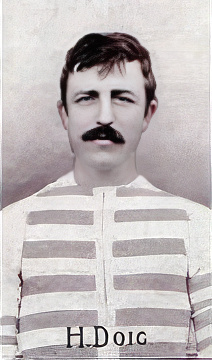
John Doig
Invariably known as ‘Hooky’, John Doig was a member of East Fremantle’s inaugural WAFA team in 1898, and thereafter was a stalwart of the side for well over a decade.
Never averse to a stoush (one cannot help but feel compelled to wonder at precisely how he came about his nickname!), he was once ordered from the field, along with teammate Tom Keenan, during a match against Fremantle.
A versatile player, Doig could perform with equal effectiveness on the last line of defence, across half back, on the wing or in the centre. A member of no fewer than nine Old Easts premiership sides, he played alongside three other members of the Doig clan at various stages of his illustrious career.
Bill Doig
Son of John “Hooky” Doig, first cousin of George Doig and Ron Doig.
Played 62 games for East Fremantle from 1932 to 1936. Bill was also a keen cricketer and in 1936 created a bowling record unlikely to be equaled – he bowled 20 batsmen (10 in each innings) – for a total of just 21 runs in the Fremantle Districts Cricket Association competition.
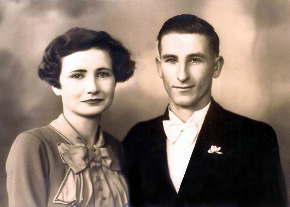
Norman Doig (Jnr)
Son of John “Hooky” Doig, first cousin of George Doig and Ron Doig.
Played 138 games for East Fremantle from 1932 to 1940. He also had a brief stint with Essendon in the VFL. War Service brought his career to an early end.
Edgar Doig
Son of John “Hooky” Doig, first cousin of George Doig and Ron Doig.
Played 14 games for East Fremantle from 1932.
He was killed in an industrial accident in 1934 aged 21 years. From The West Australian, Monday 19 November 1934:
The funeral of the late Mr Edgar David Doig, youngest son of Mrs Mary Fraser Doig of 56 Fothergill Street, Fremantle, and the late John Alexander (Hooky) Doig of the 44th Batallion, A.I.F.,took place in the Presbyterian portion of the Fremantle Cemetary on Saturday afternoon. The Rev. A. E. Brice of the Scots Church, Fremantle, officiated at the graveside in the presence of a very large and representative gathering. Mr. Doig was born at Midland Junction and after completing his education at the Fremantle Boys School, entered his apprenticeship as motor engineer with the Shell Company of Australia, Ltd., at North Fremantle, and had only finished his time about twelve months ago.
He was an enthusiast in sport. He played football, cricket and tennis, and was particularly prominent in football. He first played with the East Fremantle ‘B’ team aud later was transferred to the league team, in which he had played for two years with credit. He was of exceptionally bright and cheerful disposition and held in high esteem by a wide circle of friends, and his untimely demise will be a source of regret to many. Mr Brice, in the course of an address at the graveside, paid tribute to the sterling character of the deceased; particularly his devotion and attention to his widowed mother. The chief mourners were Messrs. Norman and William Doig (brothers), James, Charles, Norman and Cleave Doig (uncles), James Doig jr, David, Charlie, George and Dave Doig (cousins).
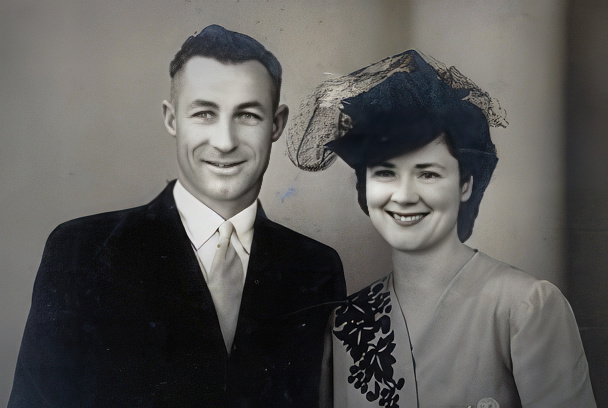
Charles Doig (Jnr)
Son of Charles Snr
Brother of George Doig.
Played 196 games for East Fremantle from 1932. War service also interrupted his football career. However, after the War, he returned to Captain the Club in 1946 when the team finished that year undefeated.
In 1933 he was awarded the Lyn Medal as the Club’s fairest and best and in 1945 was awarded Life Membership.
Ron Doig (Snr)
Son of James Doig
First cousin of Charles & George Doig.
Ron commenced his football career at South Fremantle in 1927 as a 17 year old. At 21 years of age, in 1932, he was Captain Coach of the Club. In the finals of that year he sustained fatal injuries in a match against East Perth . He played 99 games during his short career, including State games for Western Australia in 1930.
He was an outstanding sportsman, having also represented Australia in cricket against South Africa on one occasion.
In an article published in The West Australian newspaper a week after his death in 1932, it was said:
“Ron Doig was a cricketer in every real and implied sense of the word. He was an ornament to the game, as well as being a fine exponent of it. He brought to it something more than a special ability to bat and bowl and field.
A born leader, he was at the age of 23, captain of the State’s leading club and by his tact, courtesy and unfailing knowledge of the game, he earned the respect and admiration of all those with whom he came in contact, both on and off the field”.
An article in The West Australian from Tuesday 20th September 1932 writes:
ROUGH FOOTBALL.
Fremantle Council’s Criticism.
When a motion, that a letter of condolence be sent to the relatives of the late Mr. Hon. Doig, captain and coach of the South Fremantle League football team, who died on Saturday after hav ing been injured in the semi-final football match, was moved by Cr. Thornett at the Fremantle City Council last night, several members voiced their disapproval of the recent play in football games.
In supporting the motion, which was adopted, Cr. Grigg said that it was deplorable that such a popular sportsman should nave his life cut short by football. “We should do as much as we can to keep Australian football at the same standard as in previous years,” he said. “I hope that the authorities will see that a better spirit is engendered into the game and the system of brutality which seems to be growing is cut off at the root. It is bad for the game that it should be so rough and apparently not under control. If it goes on our national game Trill soon lose favour.”
A vigorous outburst against umpires was made by Cr. Wilson. “We mourn the loss of a splendid athlete,” he said. “We should notify the League against the practice of sending apparently incompetent umpires out on to the field. Fremantle people should stay away from the final matches to show their displeasure.” Speaking in defence of football, Cr. Burgess said that he disagreed with the statement that it was brutal. “Although rugged,” he said, “the match on Saturday was fought with typical semi-final spirit. I think it is wrong to criticise the League and those in charge of the game.”
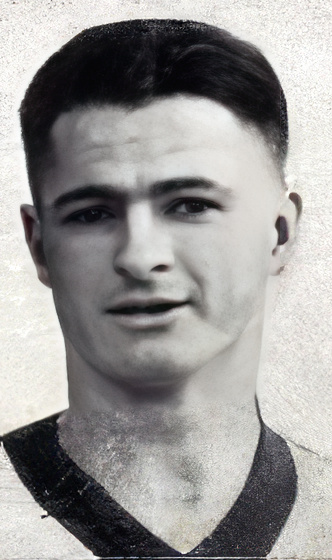
James Doig Jnr
Played 114 games for South Fremantle from 1927.
He was awarded Life Membership in 1936.
Dave Doig
Son of James Doig
Brother of Jimmie and Ronnie
First cousin of George Doig.
Played 78 games for South Fremantle from 1937 – 1940. The Second World War also interrupted Dave’s football career. Dave represented Western Australia against Victoria in 1939.
In the 1960’s, four members of the next generation of the Doig family made appearances for the South Fremantle Football Club.
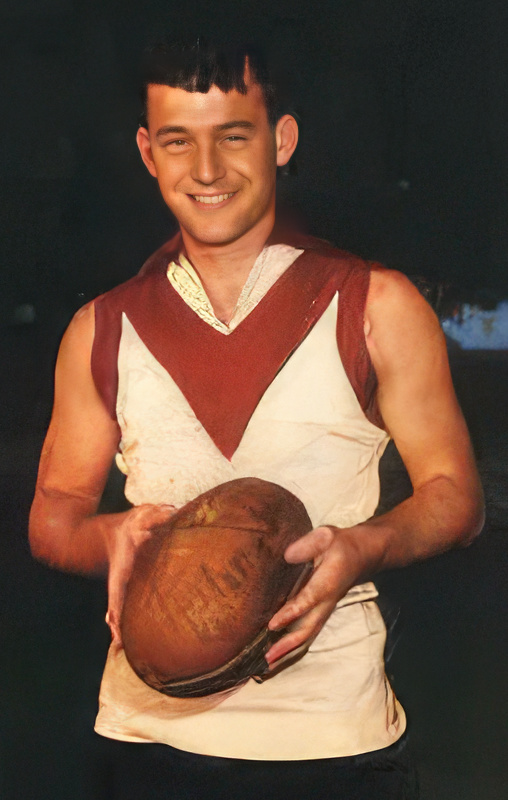
Ron Doig Jnr
Son of Dave Doig
Played 117 games from 1959 to 1967,
including a State game against Victoria in 1963.
Ron Bowe
Grandson of James (Scotty) Doig
He played 58 games from 1959 to 1963. He also represented Western Australia in Sheffield Shield cricket.
Ross Bowe
Grandson of James (Scotty) Doig
He played 43 games for South Fremantle in 1962/3. He won South Fremantle’s fairest and best award in 1963. He ended his career with South Fremantle when he left for Canberra to begin a career in the public service in early 1964.
He went on to captain the ACT side and is still well remembered at Canberra’s Eastlake club, but decided against returning to league football when he came back to WA in 1972.
Don Doig
Son of George Doig, he played 4 games for South Fremantle in 1963.
He now presents the Doig Medal at the annual Fremantle Dockers Doig Medal evening.
